5 Top Tips to Beat a Better Golfer
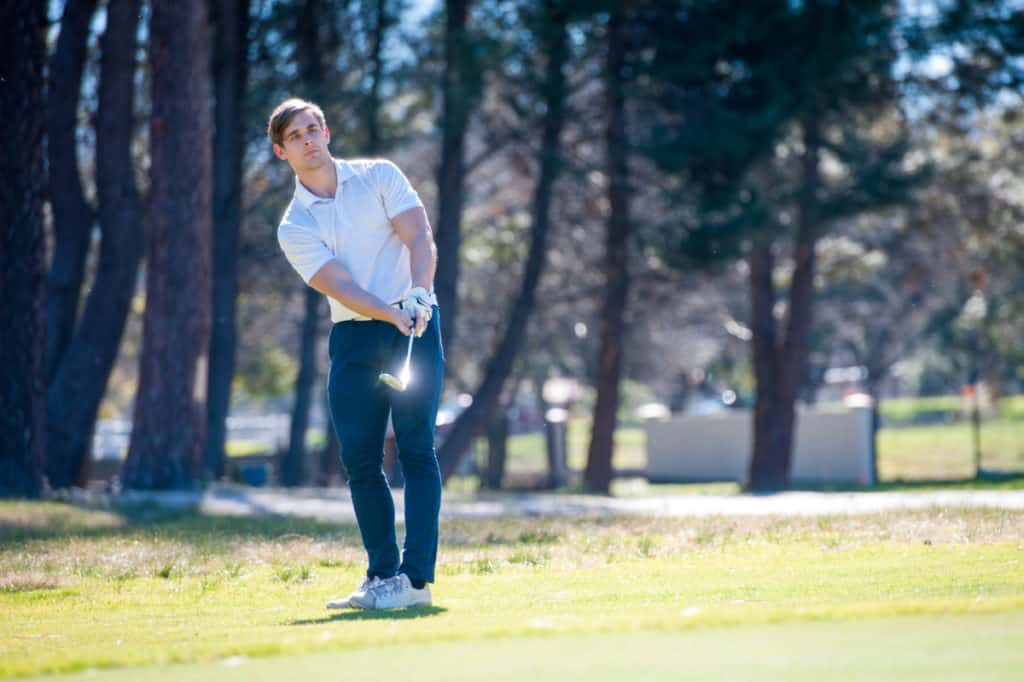
So in your next match you are up against a low handicap player or someone who is simply a better golfer than you.
There are few things in golf that match the enjoyment of beating a genuinely better player than you.
But you may have not beaten a superior golfer before.
What can you do to make sure you get that win? Is it even possible to beat him or her?
Well, of course it is possible to beat a better golfer and the key to doing it is to follow these 5 top tips:
- Remember that better players feel nerves and pressure
- Know your game plan and stick to it
- Look the part and you will play the part
- Forget about matchplay ‘tricks’ and ‘theories’
- Never give in, never!
Always remember that whatever your mind is telling you a victory in a crunch golf match against better players is always within reach and the clearer you are in your pre-match planning the more you will increase your chances of achieving that all important win.
And as an added bonus they should also help you play better golf in general!
1. Remember Better Players Feel Nerves and Pressure
When a higher handicapped player plays a much better player a lot of thoughts, the majority of them negative will come to the surface.
These often include the following:
- Don’t be intimidated
- Don’t be nervous
- Don’t get angry when you hit a bad shot
- Don’t panic if you’re behind
- Don’t lose a hole when you have a shot.
Now there’s actually nothing wrong with these thoughts. They are perfectly natural.
You may indeed be a bit intimidated by how far the better player hits the ball, you will likely – or at least should – be nervous and you will undoubtedly get angry at some point when you do hit a bad shot.
The key thing is that you are prepared when they do come and have a mental plan as to what you’re going to do.
For example many players will simply focus on their breathing when they start to sense those butterflies appearing in their stomach.
Another golfer I used to play with did a bit of stretching when they got nervous.
And they did this because focusing on their breathing or stretching exercises stopped them thinking about their nerves.
Just remember you will never ‘get rid of nerves’ so it’s better to simply to learn and get better at how to cope with them.
Even the best players, including the great Tiger Woods’ gets nervous.
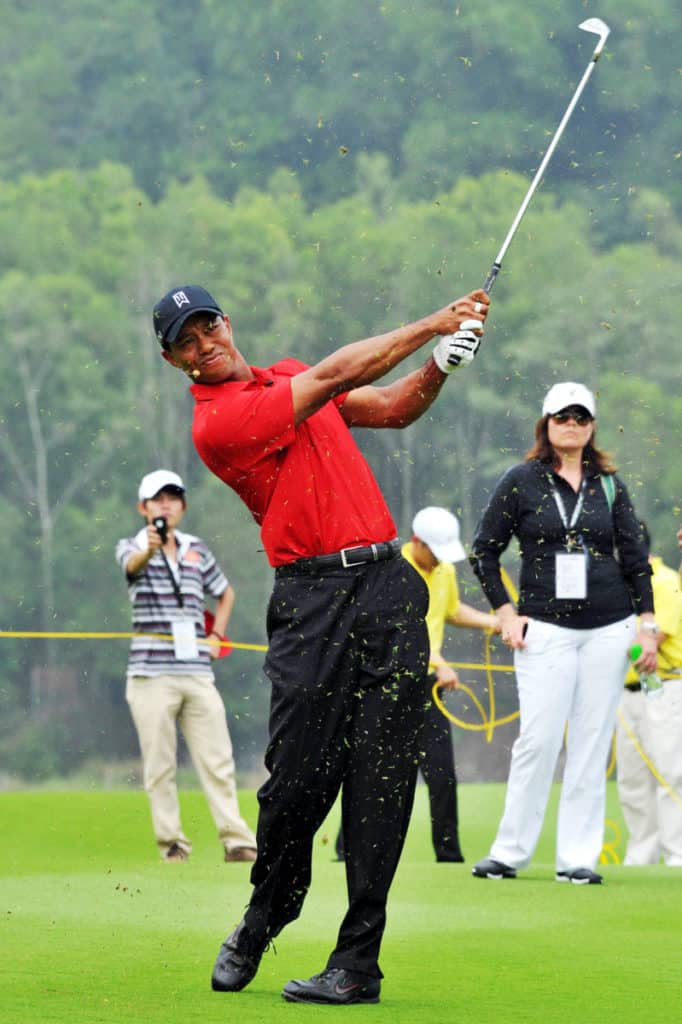
“I’m always nervous …. I care about what I do and the day I am not nervous is the day I quit … I want to feel the rush, I want to feel the nerves and it’s just a matter of how you handle it”
Tiger Woods
And from a positive point of view that is good news for you as your opponent even though they maybe a vastly superior player will be nervous also.
Or at least they should be and if they are genuinely not then your chances of victory just went up!
Trust me, as a golfer who has played off single figures for a long time playing against a higher handicapper adds a bit of pressure as you are simply expected to win.
And when you are stood on the tee knowing your opponent has one or even two shots on the hole it can be daunting prospect.
Because, particularly when a player is getting two strokes on a hole it means it’s one of the toughest holes on the course and you are thinking to yourself you have to make par to potentially even get a half.
And getting a par on one of the toughest holes on a course isn’t straightforward, even for better players.
So before each match against a better player start your mental preparation early and plan ahead how you will react to different scenarios and what to expect.
Expect that your opponent will always ask you to hole every putt.
At the same time always expect that they will always hole every putt that you ask them to.
“[Match play] gives you a chance to make an 8 or 9 on one hole and then you start over again the next hole”
Seve Ballesteros, 5-time World Matchplay Champion and Major Champion
Accept that at one point you will have a nightmare hole or that you will break the frequently repeated cardinal rule of matchplay to ‘never lose a hole to a par’.
Nobody sets out to lose any hole, never mind to a par or net par, but it happens and you need to focus on remembering the good news that having a bad hole in match play is far less damaging than doing it in a stroke play competition.
Every hole is only worth one and you can start again the next hole.
And if you are playing a fourball match rather than singles get your mind set for never having to rely on your partner because you will do the job for the team.
Rely on yourself and not your partner, particularly if you are playing your own ball, as even though combining with your partner is vital, you should be thinking about what you can do to win that hole.
2. Know Your Game Plan and Stick to It!
Amateur golfers, and particularly higher handicapped players, are notorious for making poor choices on a golf course which have absolutely nothing to do with their golf swing.
No professional golfer plays a hole without a clear strategy and when they do it goes as badly wrong as it does for the amateurs.
Part of your battle plan to beat a beat golfer must therefore include a game plan for how you are going to play the round.
“Don’t take this the wrong way …. the reason people don’t shoot lower scores, to be blunt, is that most people don’t know HOW to play. Not how to swing or how to hit the ball farther; how to play the game”
Ray Floyd, 4-time Major winner & author of ‘The Elements of Scoring: A Master’s Guide to the Art of Scoring Your Best When You’re Not Playing Your Best’
And this planning should start well before you hit the first tee.
Are you clear on what holes you are going to be getting strokes on? Do you know the course?
Although all the holes are of course important the ones where you get a stroke always feel particularly important as you will inevitably think it’s a chance wasted if you don’t win it and very a much a disaster if you end up losing it.
Having a plan on these holes, typically the toughest on the course, is therefore especially important.
If there’s out of bounds or a hazard all the way along the right hand side of the fairway and you often fade or slice the ball tee up on the right hand side of the tee box and aim for a target away from the trouble to give yourself the most margin for error.
If the match isn’t at a golf course you are familiar with, see if you can visit the course prior to the game or check their website to see the photos of the course.
Many clubs now have a virtual tour of the course online which you can take a look at to get a better feel for the place and help you with the planning.
At the very least you should take a look at the scorecard before hand.
Plan also not to play any shots that you know you very rarely play off.
For the average golfer most of the score wrecking shots they play come from trying to hit shots out of their ‘comfort zone’.
From 190 yards out over a large water hazard they envisage the perfect shot soaring into the air, landing pin high possibly even with a bit of backspin.
There’s only one problem. They’ve never carried the ball 190 yards over water before or indeed practiced the shot on the range.
Your match against the better player is therefore not the place to start trying to play these shots.
Play within your comfort zone, have a plan and stick to it.
If it’s a fourball format you are playing it’s best to work out with your partner beforehand what your roles are.
When I played with Jose Maria Olazabal in the Ryder Cup, we always planned exactly how we would play. We were always ready to be flexible of course, but we went to the first tee with a plan. Jose Maria would always hit first on every hole. He is a more consistent driver than me, and if he hit the fairway, I could be more aggressive. When he did miss, I would merely play to get my ball in play.”
Seve Ballesteros and José María Olazábal are the most successful partnership in Ryder Cup history winning 12 points, which is six more than any other pairing.
Obviously plans sometimes need to change and if your opponent hits it out of bounds or into a water hazard there is no point in being aggressive and making a similar error just because that is what the plan said to do.
Make the best decisions you can based on the plan and what your opponent or opponents are up to.
And it’s also critical to agree how you like to take advice from your playing partner.
If your partner prefers just to be left alone to read their own putts let them do it.
Or if they like to discuss a shot before stepping up to hit it make this part of the pre-shot routine.
Obviously if you think they are making a major mistake then you need to say something but the last thing any player wants from their playing partner is to create indecision or doubt.
So if you have never played as a duo beforehand make sure you have a chat about these things in advance.
So in short make sure you know your or your team’s strengths and weaknesses, plan accordingly and play within your comfort zone.
Experts believe that proper preparation gives golfers the mental golf edge.
And the frame of mind of players can contribute a lot to the outcome of their match.
Keep that in mind that you have it in you to win the match and it will do wonders from your game.
3. Look the Part and You Will Play the Part
What you’re wearing or what your clubs are looking like might not seem to be anything of significance when it comes to playing a better player.
But studies show that when you are dressed smartly and appropriately for the game of golf and are using good gear you play better.
In other words if you look like a good player or a good team you are more likely to play like one.
Turn up looking like you have just rolled out of bed with a set of filthy clubs and a worn bag and you are giving your opponent a boost before you’ve even started.
Better players almost always have a bag full of clubs that look good. I have never come across a good golfer who had a rag bag set of clubs and looked all dishevelled in their appearance.
And that look itself can be intimidating for higher handicapped players.

When it comes to greatest matchplay event in the world – the Ryder Cup – the team Captains spend a huge amount of team making sure the players look like a team.
And that’s simply because it matters.
Before the contest became the epic battle it is today the European team (or the UK and Ireland team as it was before 1979) consistently worried about how they ‘looked’ compared to the US team.
The great golf commentator and veteran of 8 Ryder Cups, Peter Allis talks today of how the US team “overwhelmed us with their equipment. It all looked better than us and we were made to feel like second rate citizens.”
And of those 8 Ryder Cups, Peter Allis was only a member of the winning team once!
Tony Jacklin, the hugely successful European Ryder Cup Captain, who helped turn the tide of consistent US victories, realised it was problem that the US team “.. always had more than we had.”
He therefore worked immediately to address the disparities on clothing, travel and equipment on taking over the captaincy and presided over 3 out of 4 wins as non-playing Captain, a spell which has kick started the European dominance of the event over the past 3 decades.
As I say looking the part and making sure your clubs are at least clean may seem insignificant.
But if these things are worried about when it comes to the Ryder Cup it makes sense that you should be paying attention to them before you play your next match.
4. Forget About Golfing ‘Tricks’ and ‘Theories’
Once you have played golf for a few years and competed in a few matches you will have heard every conceivable ‘clever’ trick and theory about how to gain the ‘edge’ in a match.
Here are just a few examples:
- Give your opponents all their putts early in the round so that towards the end when the pressure is on they haven’t been able to practice their short putting and are therefore more likely to miss.
- As often as you can walk ahead of your opponent so they feel like they are behind all day.
- If your opponent isn’t familiar with the course and you are, make sure you point out all the trouble on each hole so it looks like you’re being helpful but really you’re trying to put doubts in their head.
- If they are a fast player, you should play slowly and vice versa.
- Ask your opponent if they want you to move your ball marker out of the way even if it’s not quite on their line so that they may doubt themselves as to what the line of their putt is.
These are just a few of the ‘techniques’ (there are hundreds more!) which you will here around golf and which the teller will swear to you will give you that ‘crucial’ advantage in your match.
The problem with all these pearls of wisdom though is that they can distract you from the real business of your match.
And that is to simply to play well enough to have better scores than your opponent and win more holes than them.
If you play near to, or ideally better than, your handicap on the day then you will have an odds on chance of winning the match.
The difficulty also with these tricks and theories is that higher handicap players already tend to struggle with having too many thoughts in their head when they are playing golf.
“When you are under pressure you don’t want to get complicated, you want to be simple.”
Tom Watson, 8-time major and 3-time Ryder Cup winner
So why would you want to clog your head up with even more things to remember when playing against a better player.
And the thing about better players also, especially low handicappers, is that they get putt off less easily.
They are better players precisely because they focus more.
Worse still, trying to put a better player off with silly tricks can often have the opposite effect and irritate them enough so that they focus even more on the job at hand.
So just decide on your plan for ‘gimmes’ in advance, keep it simple and focus on your game plan.
That and how well you play is what is going to win you the match rather than any clever ‘technique’ or mind games aimed at putting your opponent off.
Because what’s the thing that will put your opponent off most and putt them under the most pressure – making pars and net pars consistently.
As 5-time World Matchplay champion and 4-time Ryder Cup winner Seve Ballesteros put it – “Make your opponents think they can only win the hole with a birdie. The knowledge that you are making par puts pressure on them.”
5. Never Give In, Never
There is one thing that all the great match players in golf history have had in common.
And that is simply that they never gave up.
Whatever the situation of the match they found themselves in they never thought it was a lost cause until the final putt had been sunk and the game was officially over.
And that never give up mentality applies before the match also.
Because it does not matter if you are a 32 handicapper in the worst form of your life and you are drawn against the best golfer in the club.
Absolutely anything can happen over the course of 18 match play holes and often does.

“I’ve always made a total effort, even when the odds seemed entirely against me. I never quit trying; I never felt that I didn’t have a chance to win.”
Arnold Palmer – PGA legend, 7-time Ryder Cup and Major Champion
Because match plan is fundamentally different to stroke play and however bad a hole you have on occasion you can only lose one hole at a time.
And unlike stroke play you can recover all that damage on the hole that immediately follows.
Some of the best memories you can have in golf are of epic comebacks in matches against better players.
One of my favourite memories in golf was playing a match where my buddy and I were 4 down with 5 to play.
Our opponents included a scratch golfer and not many people would have been putting money on a comeback.
But we won the 14th and then the 15th to get back to 2 down with 3 to play and suddenly the impossible looked possible.
And then on the 17th our scratch golfer opponent ‘shanked’ his tee shot out of bounds as the pressure built to leave us all square going down the last.
Queue me hitting the two best shots I hit all day to leave a tap in birdie on the 18th to secure victory.
It was a great day and one we still reminisce about almost 20 years later.
So never give up when you are playing a match against a better player and the resultant comeback you can achieve may end up giving you one of your best golf memories!
More great articles related to this topic:
- 10 Ways to Lower Your Handicap Fast. No Swing Changes Needed!
- 10 Best Golf Stats to Keep Track of. Start with ‘Major Mistaks’
- Ryder Cup Style Golf Trips: A Complete Guide Loaded With Ideas
- Why Do I Get Worse the More I Play? You Need Some SPICE!
- 5 Fun Buddy Golf Trip Games for a Wide Range of Handicaps
- 11 Fun Golf Games for Odd Numbers with Wide Range of Handicaps
RECENT ARTICLES
LEGAL INFORMATION
This site is owned and operated by Golfing Focus Limited, a private limited company whose registered office is in London, UK. Golfing Focus Limited is a participant in the Amazon Services LLC Associates Program, an affiliate advertising program designed to provide a means for sites to earn advertising fees (at no cost to you) by linking to Amazon.com. Golfing Focus Limited also participates in other affiliate programs with the eBay Partner Network, FlexOffers, CJ.com, Svorn and other sites and is compensated for referring traffic and business to these companies (again at no cost to you).
Our Socials


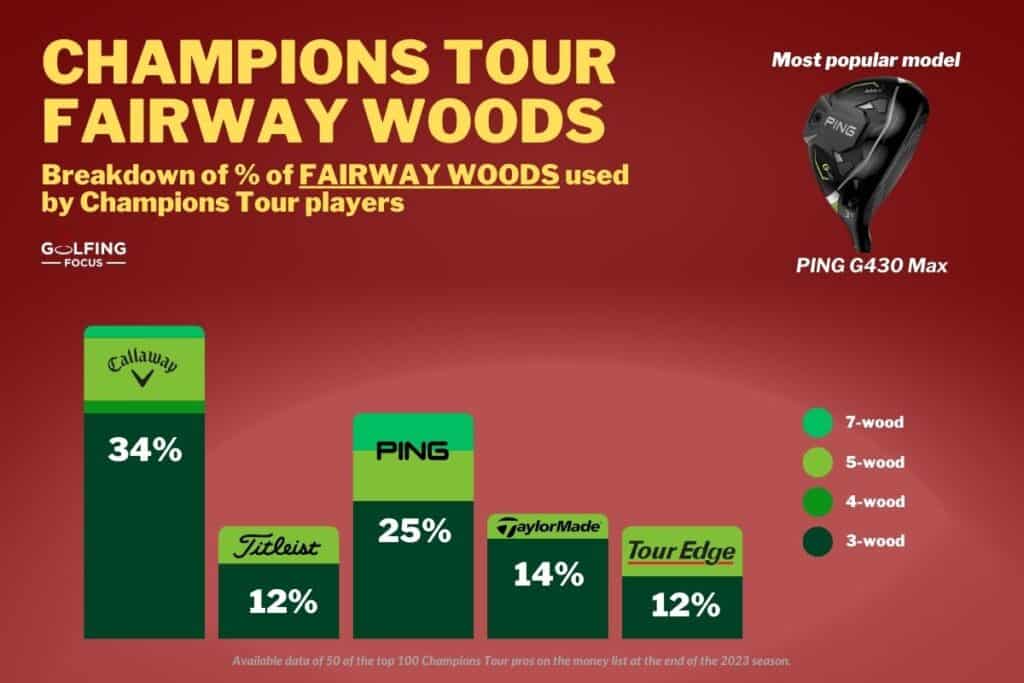

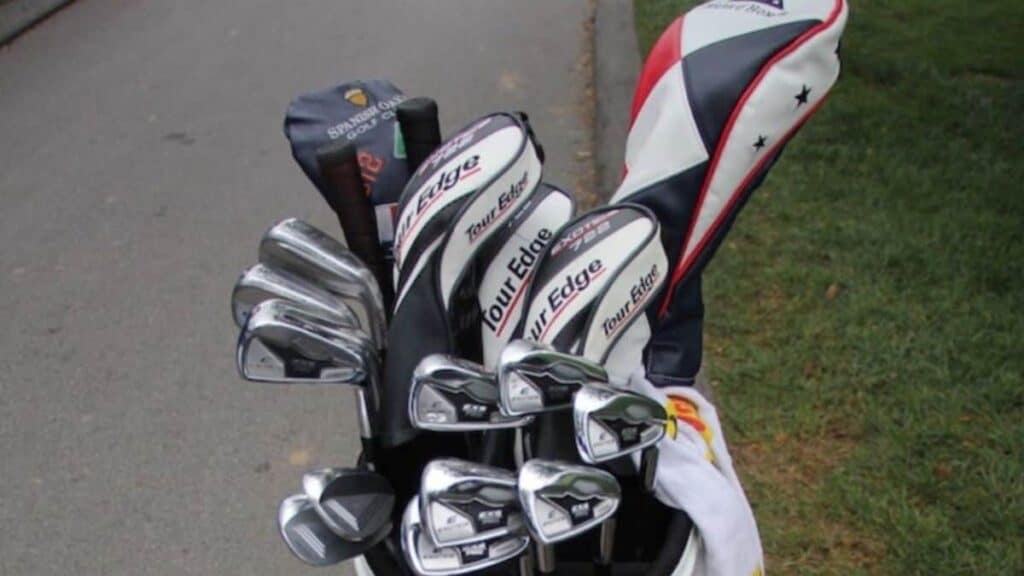
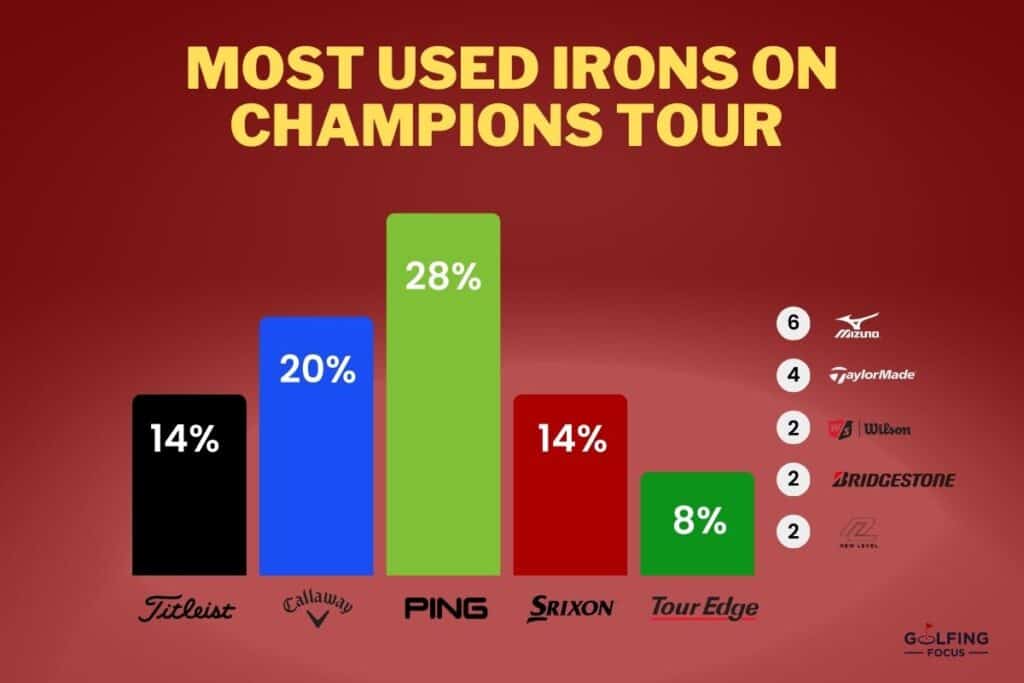
Leave a Reply